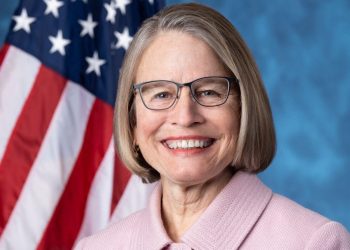Earlier this month, Attorney General Garland released a memo instructing DOJ employees to respond to increasingly passionate school board meetings across the country. That memo talks about working to stop violence and threats of violence, which is fine. But unfortunately, the memo makes it sound like DOJ might go after much more than that.
Over the last year, school board meetings have turned from relatively calm local affairs to often boisterous meetings that are seen across the country. This began with parents who were upset about schools being closed last year well after we learned they could safely reopen in spite of COVID-19. Then it grew to include pushback against mask mandates for students and against school districts adopting a curriculum known as critical race theory. There are many parents across the country who are upset about these things, and that’s their right.
Here’s the issue. The Attorney General’s memo spoke of violence and threats of violence. Make no mistake about it. Violence should never be used to get what you want in politics. It’s illegal for a good reason. And making real, true threats is illegal too. They scare people, and that’s not right. No one should ever threaten someone with violence just because they’re angry about school policy.
Unfortunately, DOJ’s memo goes further than that. A person reading it might think a parent can’t really speak his or her mind at school board meetings – that spirited debate is not welcome – that very pointed and direct questions for educators aren’t welcome – that deep disagreements aren’t welcome. Parents coming and speaking to their local school boards is the essence of democracy. And democracy includes passionate disagreement. If an elected official can’t handle a passionate disagreement, then he or she shouldn’t go into politics in the first place. That goes for the President, that goes for me and that goes for every member on every school board in the country. Elected officials don’t go crying to the FBI when constituents tell you how they’re really feeling.
If a parent is passionately advocating for her child at a school board meeting, and school officials tell her she’s out of line, the parent should not have to worry that the FBI is going to pay her a visit at her home after that meeting. She should not have to wonder whether the PATRIOT Act is going to be used to investigate her. It should never even cross her mind. If she does, then she might just stop talking altogether at the meeting.
This is what’s known as a chilling effect and it’s a bad thing for democracies. It should never happen. So, it is critically important for the Attorney General to make very clear to everybody that, short of violence and making true threats of violence, the federal government will have nothing to do with the crowds and comments people make at school board meetings. All of my Republican colleagues on the Senate Judiciary Committee and I sent a letter to the Attorney General telling him to do just that. He should make clear to all Americans that, unless there is physical violence or threats of physical violence, federal law enforcement has nothing to do with local school board meetings.
Editor’s note: This op/ed is from a speech that U.S. Senator Chuck Grassley gave on the Senate floor on Monday, October 18, 2021.















